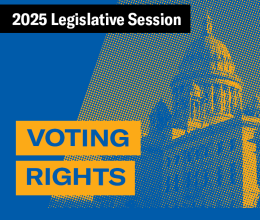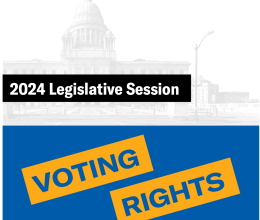The ACLU of Rhode Island today commended the Senate Judiciary Committee for approving legislation ending the counting of prisoners as residents of Cranston for the purposes of drawing voting districts. The legislation eliminates the practice of giving extra political power to the voting districts that include the ACI, the result of what is known as "prison-based gerrymandering."
Even as state law requires an incarcerated individual to vote from their most recent home address, Rhode Island’s legislative districts count ACI residents as if they all lived at the same address on Howard Avenue. Under the redistricting plan adopted in 2012, more than 15 percent of one of Cranston’s legislative districts is composed entirely of prisoners who are unable to vote there, leaving every 85 residents of that district with the same voting influence as 100 of any other district.
Approval of S 2286, sponsored by Senator Harold Metts, eliminates the artificial inflation of these districts by requiring prisoners to be counted as living at their most recent home address for the purposes of drawing voting districts. In the past few years, four states and more than 200 counties and municipalities facing prison gerrymandering have pro-actively addressed this problem in similar ways.
ACLU of Rhode Island Policy Associate Hillary Davis noted: “Because of our small size and presence of only one prison location in the state, Rhode Island has been called the worst example of prison-based gerrymandering in the country. Approval of this legislation represents a tremendous step forward in upholding the principle of ‘one person, one vote’ and restoring equal representation for all Rhode Island voters. We applaud the Senate Judiciary Committee’s action on this legislation, and look forward to a vote on the Senate floor in the near future and, ultimately, approval by the House.”
The legislation is also supported by Common Cause RI, the League of Women Voters of RI, Direct Action for Rights and Equality, and the Prison Policy Initiative.


